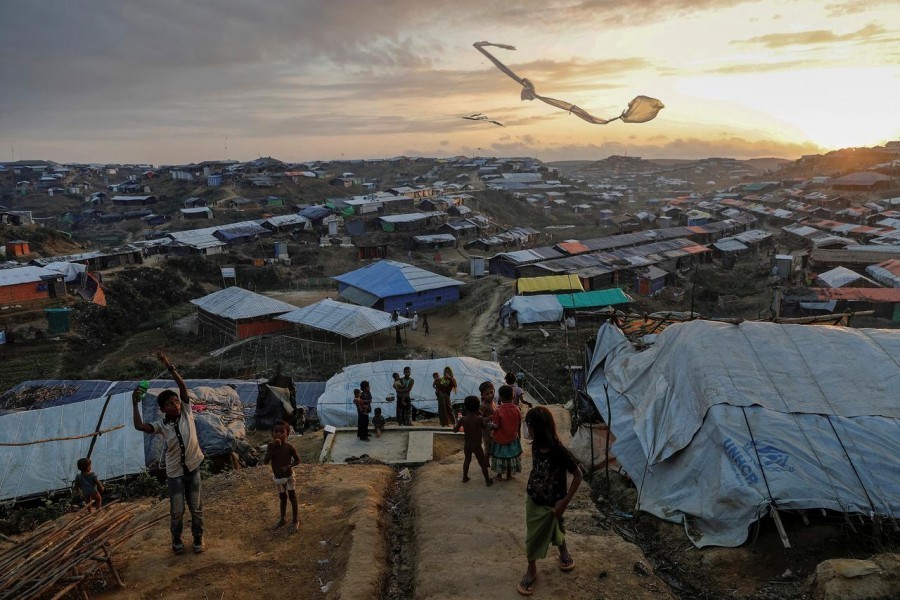Gambia has said it will submit the first memorandum in the case of atrocities against Rohingya people of Myanmar at the International Court of Justice (ICJ) in October.
“We are working extremely hard along with international lawyers [...] we will submit the first memorandum in October. Gambia always takes the lead when it comes to humanitarian crises, and are especially active in the African continent,” Solicitor General and Legal Secretary at the Ministry of Justice of Gambia Cherno Marenah said at an e-conference.
The first-day part of the two-day long e-conference (25-26 August) titled “Connecting Rohingya Diaspora: Highlighting the Global Displacement” was organised by ActionAid Bangladesh on early Wednesday.
The e-conference was attended by 500 experts, researchers, academician, human rights activists and humanitarian workers working on the Rohingya diaspora from 12 countries including Bangladesh and Myanmar.
Foreign Secretary of Bangladesh Masud Bin Momen addressed the event as the chief guest.
“[There is the] The possibility of conflict if the Rohingya situation prolongs. Despite Bangladesh’s willingness to achieve peaceful repatriation of the Rohingya refugees, Myanmar’s disinterest is proving to be a major obstacle,” he said.
In the welcome speech, Manzoor Hasan, executive director, Centre for Peace and Justice (CPJ), BRAC University, said, “We will release the Dhaka Declaration after the culmination of the two-day conference.”
Emphasising a peaceful solution to the Rohingya crisis, he said, “This will be the second Dhaka Declaration. The first one was released in 2018”.
Imtiaz Ahmed, director, Centre for Genocide Studies (CGS), said the Rohingya issue is not only a bilateral issue between Bangladesh and Myanmar anymore, it has become an international issue.
“There has been a systematic genocide going on in Myanmar for decades. Even though previously the genocide had not gotten proper coverage, the 2017 events have brought it into the limelight,” he added.
Thanking Gambia for presenting the Rohingya genocide at the International Court of Justice, Imtiaz Ahmed, also an international relations professor at Dhaka University, said, “This conference has three objectives – presenting the miserable scenario of the Rohingya community to the international community, listening to the experiences of the Rohingya diaspora scattered around the world, and connecting the Rohingyas living both in and out of Myanmar."
Dr Imtiaz urged the International community to unite in order to achieve the peaceful repatriation of the Rohingya refugees and reformation of the constitution of Myanmar to ensure the rights of the Rohingya refugees as Myanmar citizens.
The Country Director of ActionAid Bangladesh Farah Kabir said, “We don’t want the plight of the Rohingyas to prolong. We all know that there was a massive influx of theirs into Bangladesh in 2017. The Rohingya diaspora themselves can play a crucial role in bringing about a change. This situation can be resolved by uniting the Rohingya diaspora around the world.”


